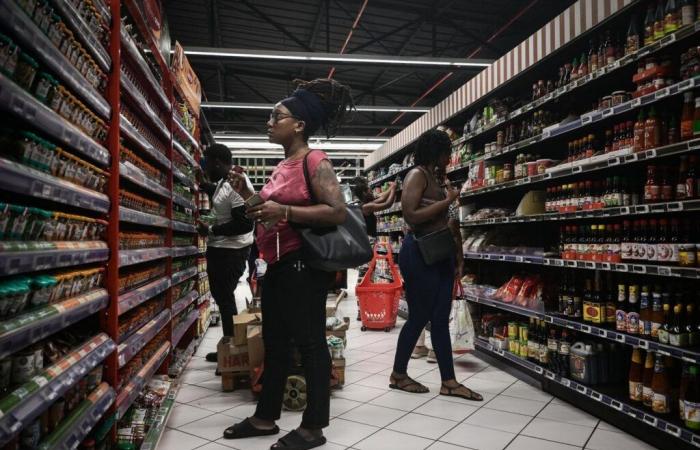Since 1is September, Martinique is in the grip of strong social mobilization. The protest finds its origins in the high cost of living. But the movement is not just about prices. It reveals a much deeper unease because the high cost of living is a powerful accelerator of inequalities and contributes to a certain form of deprivation of freedom for the most modest households.
Life in overseas communities has never been as expensive as it is today. In Martinique, consumer prices have increased by 13% over the last five years. Inflation still remains high today: 2.4% over the last twelve months (compared to 1.7% nationally). Since 2020, food prices have jumped by 22% (and 3% over the last twelve months compared to only 0.5% in France).
A price gap with the multifactorial Hexagon
But, these data do not tell the whole story about the reality of the cost of living. In fact, these increases apply to prices whose level is already higher than in mainland France. According to INSEE, the price gap between Martinique and mainland France was, on average, 14% in 2022 and exceeded 40% for food products alone. For certain foods, such as pasta or bottled water, this difference would be around 75%.
Contrary to popular belief, no operator is solely responsible for the high cost of living overseas. The study that we recently carried out at the request of the CCI of Martinique shows that two thirds of the price difference on everyday consumer products can be explained by factors linked to distance: maritime transport, fees. port costs, handling, internal transport, distribution costs, etc. These approach costs increase prices because the logistics chain is longer than in France and each operator has a margin on the previous one.
Taxation is the second factor explaining the cost of living. In addition to VAT, sea dues collected for the benefit of local authorities are added. However, this customs tax weighs heavily. Ultimately, a Martinican consumer will pay more indirect taxes on food products than a metropolitan household.
Finally, the high cost of living also finds its origin in weak competition. In an oligopoly situation, operators set their prices based on customers’ willingness to pay. However, certain Martinique households have strong purchasing power. This is the case, in particular, of civil service agents (whose salaries are increased by 40%) as well as, by contagion effect, of senior management personnel in the private sector.
Fight against the high cost of living
The fight against the cost of living involves, first of all, actions on prices. In this regard, we recommend carrying out double equalization to primarily benefit the least advantaged households. The first equalization would lead to the elimination of delivery charges on basic necessity products and transfer them to “last necessity” products. This transfer will only be accepted by operators if it is financially neutral for them (the margin lost on certain products being recovered on others).
The second equalization follows the same logic and concerns taxation; the State and local authorities refraining from any indirect levy on essential products by transferring the shortfall to products of last necessity. This transfer will only be acceptable if it is neutral for public finances.
Finally, the fight against the high cost of living also involves proactive actions on income. The main measure would be to significantly increase the activity bonus paid to poor workers. The financing of this operation would be ensured by a reduction in the extra remuneration enjoyed by the best paid civil servants.
Reduce inequalities, restore freedom to households
The measures recommended to combat the high cost of living involve internal transfers between agents. However, they cannot be reduced to a zero-sum game. They contribute to reducing social inequalities and restoring freedom to the least advantaged households.
Overseas societies are characterized by very high inequalities and a significant prevalence of poverty, which affects 27% of Martinicans; twice as much as in mainland France. The drop in prices on basic necessities combined with the increase in the activity bonus would make it possible to reduce this social divide.
The high cost of living has led, among the most modest households, to a significant increase in the budget devoted to constrained expenses (particularly food). Their income not having kept up with prices, these families had to sacrifice their “free” spending. This loss of freedom – and the resulting social downgrading – is at the origin of the protest. There will be no lasting return to social peace without providing rapid responses to the distress of the most vulnerable populations.






